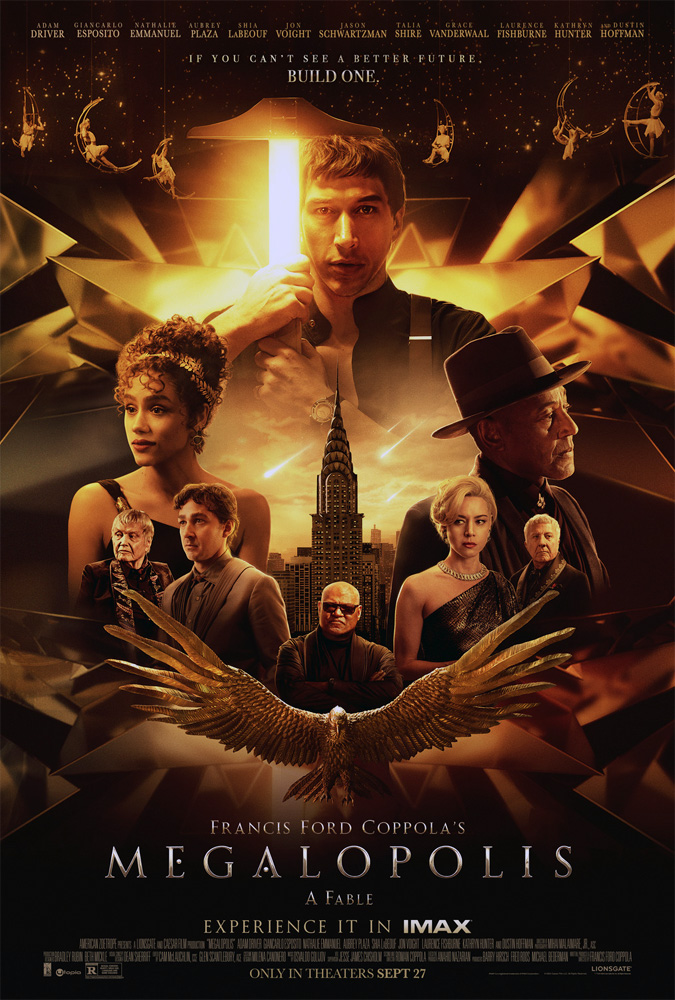American director Francis Ford Coppola’s masterpiece “Megalopolis” released this past weekend to mixed reviews.
The film, having been in production since the 1980s, follows the rivalry between visionary architect Cesar Catilina (played by Adam Driver) and corrupt Mayor of New Rome (in reality New York City) Franklyn Cicero (Giancarlo Esposito) in a modern-day ‘American Republic.’ Supporting characters include Cicero’s daughter Julia (Nathalie Emmanuel), television presenter Wow Platinum (Aubrey Plaza), banking executive Hamilto Crassus III (Jon Voight), Crassus’s nephew Clodio Pulcher (Shia LaBeouf), and Laurence Fishburne as Catilina’s driver and the film’s narrator Fundi Romaine. The film is largely inspired by an attempted coup d’état led by Lucius Sergius Catilina to overthrow Roman consul Marcus Tullius Cicero in the year 63 B.C.
Catilina, who has the ability to stop time, has ambitious plans to construct a massive, futuristic utopia within the city of New Rome named “Megalopolis,” which come to light following a Soviet satellite’s fall from orbit. Cicero leads a campaign against Catilina and Megalopolis; the two’s distaste for one another is only heightened by Catilina becoming romantically involved with Cicero’s daughter Julia.
“Megalopolis” might be one of the most incredible movies I’ve ever seen. It was dark, riveting, beautiful, dramatic, detailed, and, above all, an experiment—it was a gargantuan risk taken by Coppola that, unfortunately, has yet to pay off, largely because we as a society do not have the patience for ‘challenging’ cinema. And that, above all, is what “Megalopolis” is built upon. It’s a great story of political rivalry in modern-day Ancient Rome, but to me the movie itself was more about the experience itself. And that’s what the film was: a Shakespearian epic. An experience. If you’ve seen films like Daniel Scheinert and Kwan’s ‘Everything, Everywhere, All at Once,’ you know what I’m talking about.
Coppola has a well-established reputation as an unconventional, independent film maker, often financing his projects out-of-pocket; “Megalopolis” was no different. Coppola’s team put over $120 million into the film, and Coppola himself describes “Megalopolis” as both a passion project and his magnum opus.
I think that this film, despite the initially poor reception, will find a following, niche and cult though it may be. Most of today’s world has no time for creative projects like these—film critics especially—but I’m sure some will see its value.

